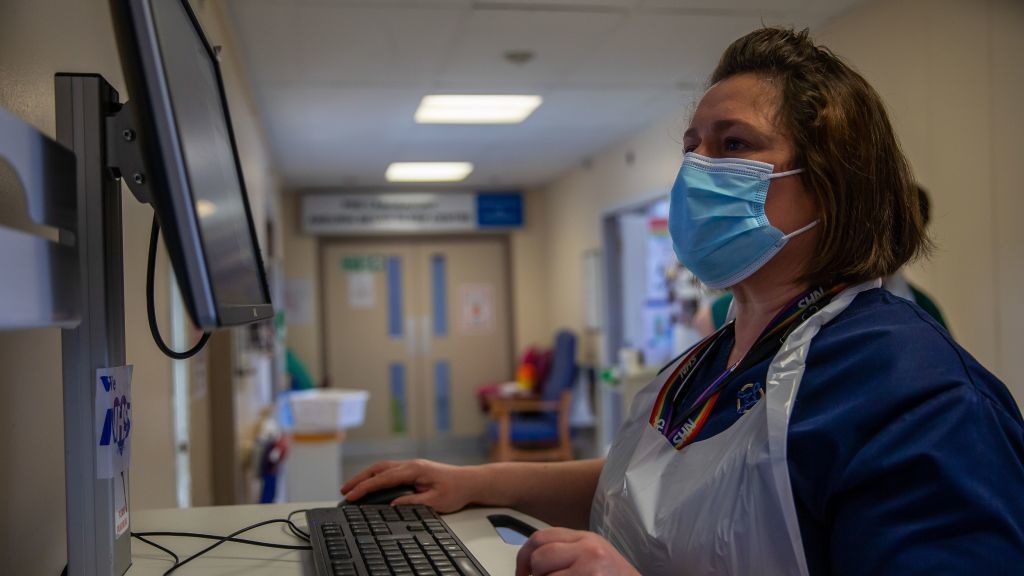Burglaries and theft account for third of data breaches
It’s not just misplaced USB sticks – other devices are getting stolen too, meaning the criminal underworld can access confidential business data.

Burglaries and theft are the the biggest risks when it comes to businesses losing information, accounting for a third of data breaches, according to the Information Commissioner's Office (ICO).
The ICO said that theft accounted for 231 of the 711 security breaches that have occurred since the infamous loss of 24 million child benefit records two years ago.
More than 200 private sector firms and 209 NHS bodies have reported breaches to the ICO. This is worrying, as the ICO said that the NHS usually held the most sensitive personal data, such as health records.
In a statement, deputy information commissioner David Smith said that while the majority of organisations got data protection right, a significant minority failed to take security seriously enough.
"Unacceptable amounts of data are being stolen, lost in transit or mislaid by staff," he said. "Far too much personal data is being unnecessarily downloaded from secure servers onto unencrypted laptops, USB sticks, and other portable media."
Currently the ICO can serve organisations with enforcement notices, and force chief executives to sign formal undertakings' to improve security.
However, in 2010 new powers are scheduled to come into force that will allow the ICO to fine organisations, where there is evidence of a reckless or deliberate' data breach.
Sign up today and you will receive a free copy of our Future Focus 2025 report - the leading guidance on AI, cybersecurity and other IT challenges as per 700+ senior executives
The Ministry of Justice is currently deciding on how much these fines will be, while the ICO is working towards better compliance with the Data Protection Act.
The upcoming Coroners and Justice Bill should also give the ICO formal inspection powers across government.
"People's data has a value. If you had 10,000 you are unlikely to leave it in the boot of your car; you would put in a safe or deposit it in a bank," said Mick Gorrill, ICO assistant commissioner, in a statement.
"In the same way, people's national insurance numbers, health records and bank details are valuable assets and organisations must take adequate steps to protect personal data."
-
 The modern workplace: Standardizing collaboration for the enterprise IT leader
The modern workplace: Standardizing collaboration for the enterprise IT leaderHow Barco ClickShare Hub is redefining the meeting room
-
 Interim CISA chief uploaded sensitive documents to a public version of ChatGPT
Interim CISA chief uploaded sensitive documents to a public version of ChatGPTNews The incident at CISA raises yet more concerns about the rise of ‘shadow AI’ and data protection risks
-
 NHS leaders are keen to adopt new digital tools, but IT can't solve problems on its own
NHS leaders are keen to adopt new digital tools, but IT can't solve problems on its ownA survey of healthcare decision-makers finds they believe IoT devices and electronic health recording could help them reach more patients quicker
-
 How a paperless approach cut wasted staff hours at Bradford Teaching Hospitals Trust
How a paperless approach cut wasted staff hours at Bradford Teaching Hospitals TrustCase study Through DrDoctor’s digital portal for patient appointments and advice, the Rheumatology team at Bradford Teaching Hospitals NHS Foundation Trust has dramatically cut
-
 Healthcare’s next chapter
Healthcare’s next chapterwhitepaper Revolutionizing how you care with EPR experts you can trust
-
 How digital experience management helped an NHS trust improve productivity
How digital experience management helped an NHS trust improve productivityCase study Princess Alexandra Hospital NHS Trust used digital experience management to cut device failure and restore time to clinicians
-
 Will the NHS Federated Data Platform transform UK healthcare?
Will the NHS Federated Data Platform transform UK healthcare?In-depth Plans to create a data platform in partnership with the private sector could revolutionize NHS treatment, but concerns over data privacy and security are festering
-
 NHS IT issues costing doctors more than 13 million hours annually
NHS IT issues costing doctors more than 13 million hours annuallyNews Doctors warn that ageing IT infrastructure is impacting patient care and clinical outcomes
-
 Automation is helping the NHS clear its patient backlog, but not as quickly as expected
Automation is helping the NHS clear its patient backlog, but not as quickly as expectedAnalysis The healthcare service's big bet on robotic process automation is making 'impactful' but slow progress
-
 DHSC sets out ambitious targets for NHS App by 2023, beyond
DHSC sets out ambitious targets for NHS App by 2023, beyondNews Ongoing NHS digitisation efforts will form backbone of the new system